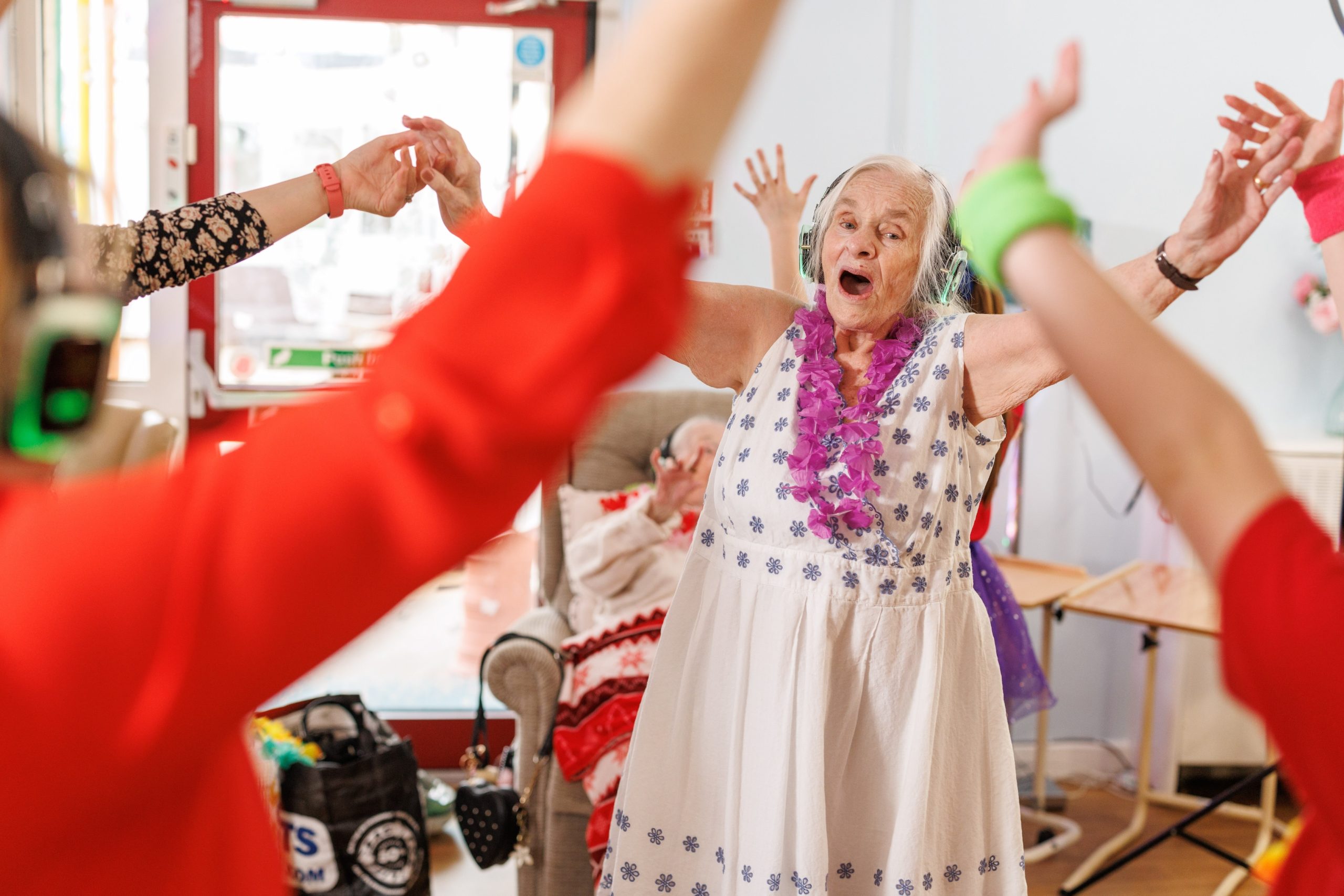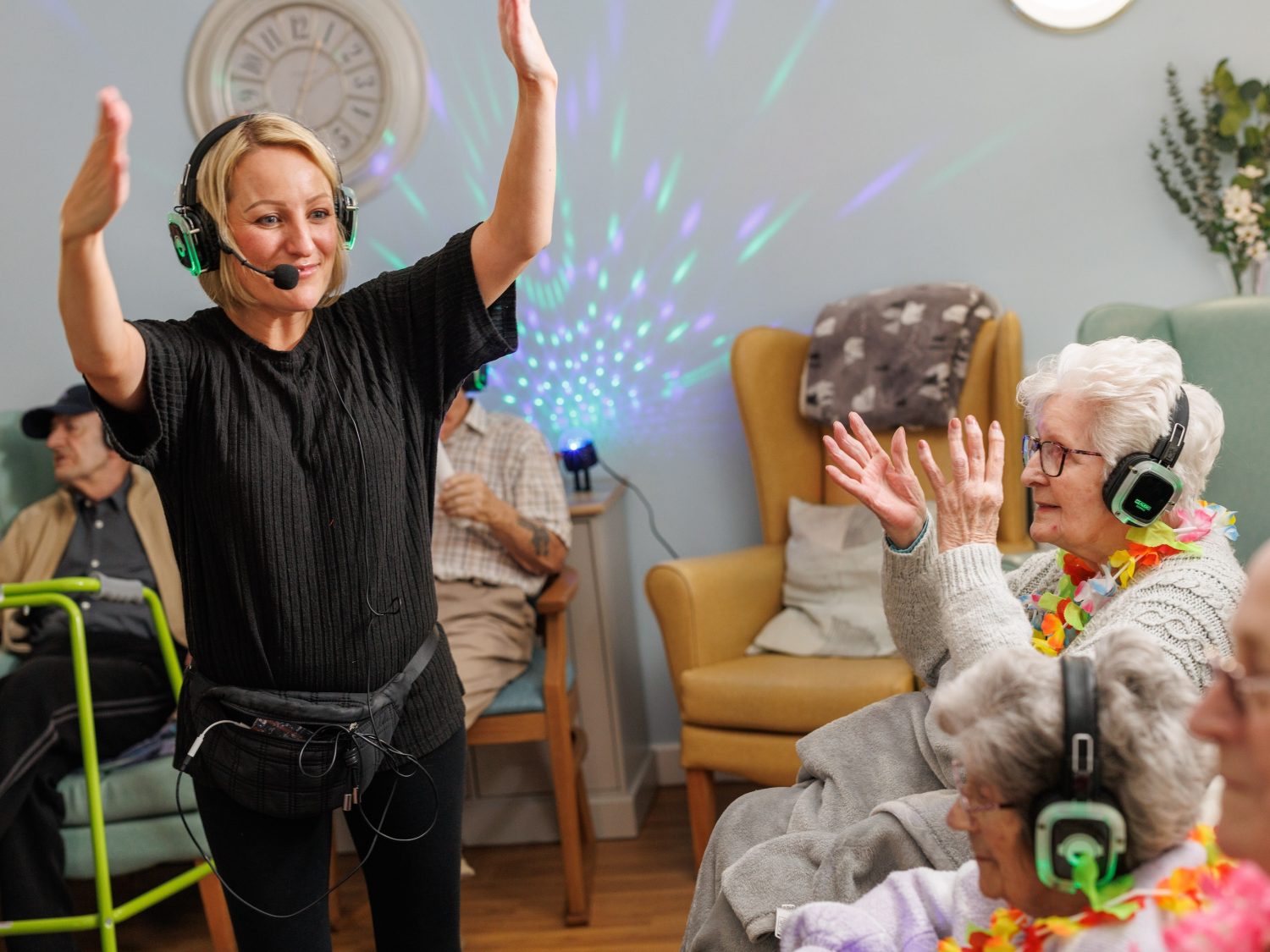Case Study
Bringing Caerphilly together through the arts
Silent discos and apprenticeships improving community health and supporting culture

Brodawel Care Home in Caerphilly is reducing isolation and improving well-being through intergenerational music and art sessions
The Well-being of Future Generations Act considers cultural well-being as important as economic, environmental, and social well-being and acknowledges its significant impact on people’s lives, including our health and well-being.
But currently, we are not working with communities enough to tackle the root causes of ill-health or recognising the importance of wider social and environmental factors.
The challenges:
- Funding for cultural well-being is often one of the first areas to be cut during budget reviews, despite its contribution to preventing ill-health and reducing inequality.
- Not everyone in Wales can access culture and the arts – we currently rank third from bottom of European countries for spending per person on recreational and sporting services, and second from bottom for cultural services.
- Health and social care aren’t prioritising prevention and on average, we are spending the last 20 years of our lives in ill-health.
- Many public bodies are not fully addressing the social determinants of health within their remits.
Caerphilly County Borough Council’s Arts Development team is using the arts to bring people together, foster well-being, and support creative professionals.
Based at Blackwood Miners’ Institute, the team runs an apprenticeship scheme focused on music and health and delivers innovative arts initiatives in care homes including silent discos and seated exercise classes, projects designed to reduce loneliness, keep people active and improve well-being through bringing people from the community together.
One of their standout projects is the Guided Movement Silent Disco. First of its kind in Wales, the discos promote physical, emotional, and social well-being in Caerphilly care homes by encouraging movement, lifting moods, and fostering shared experiences.
Local authority care homes often face barriers such as limited budgets and a lack of activity coordinators, reducing engagement opportunities for residents but through collaboration with local schools, they’ve managed to run intergenerational sessions which also help break down barriers and encourage meaningful interactions.
The discos take a person-centred approach and tailor playlists and sessions to meet the needs of each care home. Through using silent disco headphones, the sessions allow people in other rooms to take part, ensuring everyone, regardless of mobility or confidence, can engage with the music.
They also vary the music played; rather than just playing old war songs, residents experience new music and are introduced to songs they may not have heard otherwise.
Success for this project has relied on strong relationships between care homes, schools, and arts practitioners, and for those looking to replicate, we would recommend a dedicated contact within each setting to ensure smooth coordination and maximising the project’s impact on well-being and social engagement.

“By collaborating with schools to facilitate activities like this, there’s an opportunity to create something really special that brings generations together.
The past informs the present and helps us imagine new futures, no matter our age.
Whether young or old, we all have a future, and the beauty of the Well-being of Future Generations Act is that it encourages people to engage in experiences that connect generations, reminding us that the future belongs to everyone.”